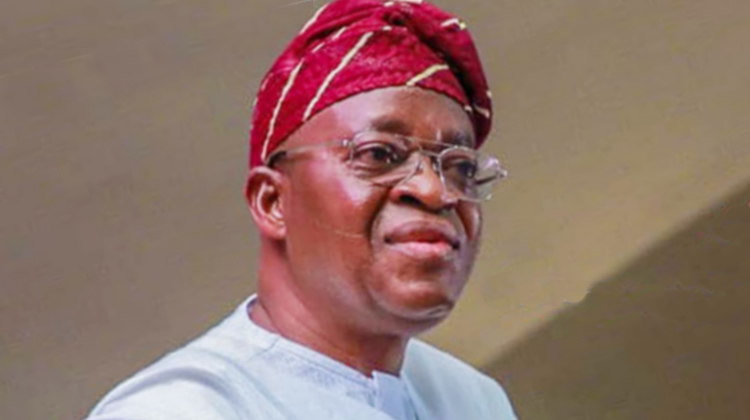The Nigerian maritime sector, a crucial engine for economic growth, recently witnessed a significant leadership transition within the Maritime Workers Union of Nigeria (MWUN). The 6th Quadrennial National Delegates Conference marked the end of Adewale Adeyanju’s tenure as President-General and the election of his successor, Francis Bunu. This transition occurred amidst renewed governmental assurances of prioritizing maritime worker welfare and reaffirming the sector’s importance in national development. Adegboyega Oyetola, the Minister of Marine and Blue Economy, emphasized the government’s commitment to improving the working conditions and industry standards within the maritime sector. This focus aligns with President Bola Tinubu’s administration’s recognition of the maritime sector as a key driver of economic advancement.
Adewale Adeyanju’s legacy as MWUN President-General is highlighted by substantial achievements in advancing worker rights and welfare. His tenure oversaw a period of transformation and industrial harmony, characterized by the establishment of a minimum standard for conditions of service. This landmark achievement set a benchmark salary of N200,000 for shipping workers, significantly impacting their financial well-being. Furthermore, Adeyanju’s leadership spearheaded improved welfare packages for dockworkers and seafarers, acknowledging their crucial role in the maritime industry’s operations. The successful negotiation of disengagement benefits for aged seafarers represents another pivotal accomplishment, providing a safety net for these workers after years of service.
The union’s expansion under Adeyanju’s stewardship further solidified its influence and reach. The establishment of new units at strategically important locations like Lekki Deep Sea Port, Dangote Port, and Midstream Operations demonstrates MWUN’s adaptability to the evolving landscape of the Nigerian maritime sector. These expansions strategically positioned the union to represent workers at critical infrastructure hubs, ensuring their voices are heard in these emerging centers of maritime activity. This growth reflects the union’s commitment to representing workers across the expanding maritime industry.
Beyond physical expansion, Adeyanju’s leadership also prioritized the modernization of MWUN’s operations. The commissioning of a new secretariat provided a modern and functional space for the union’s activities, enhancing its organizational efficiency and professionalism. Furthermore, the establishment of a dedicated legal department equipped MWUN with the resources to navigate legal complexities and advocate more effectively for its members’ rights. These modernization efforts demonstrate a forward-looking approach, preparing the union for the challenges and opportunities of a rapidly evolving maritime landscape.
The incoming President-General, Francis Bunu, inherits a union strengthened by Adeyanju’s accomplishments. Bunu’s leadership will be crucial in navigating the future challenges and opportunities within the Nigerian maritime industry. The government’s renewed commitment to the sector’s growth and the welfare of maritime workers provides a supportive backdrop for Bunu’s tenure. As the maritime sector continues to evolve, Bunu’s ability to build upon Adeyanju’s legacy will be instrumental in ensuring the continued advancement of maritime worker rights and welfare.
The Nigerian government’s commitment to the maritime sector and its workforce comes at a critical juncture. With global trade dynamics constantly shifting, the maritime industry faces both challenges and opportunities. The government’s focus on improving working conditions and industry standards is essential for attracting and retaining skilled workers, ensuring the competitiveness of Nigerian ports, and maximizing the sector’s contribution to economic growth. As the new leadership of MWUN takes the helm, the collaboration between the union, the government, and industry stakeholders will be crucial in realizing the full potential of Nigeria’s maritime sector. The focus on worker welfare, coupled with strategic investments and policy support, will pave the way for a thriving and sustainable maritime industry that benefits all stakeholders.


